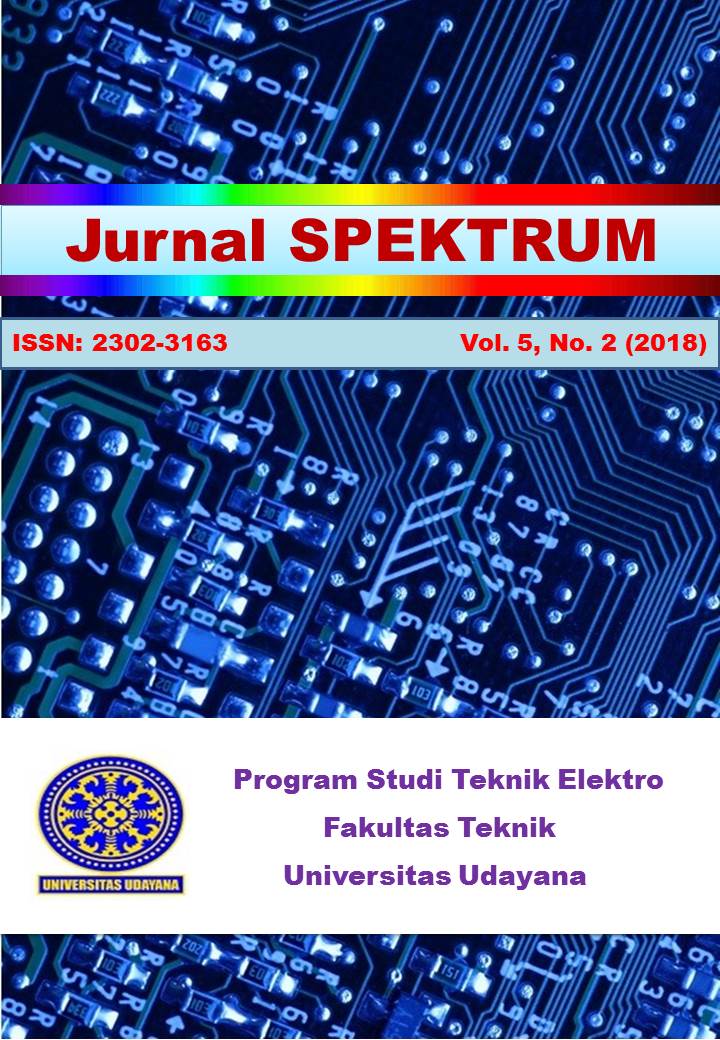Analisis Pengaruh Nilai Resistansi untuk Pentanahan Kawat Netral Terhadap THD Arus di Fakultas Teknik Universitas Udayana – Sudirman
Abstract
Harmonics is a periodic sine wave distortion, due to the operation of nonlinear loads. Har-monics causes current to flow in the neutral wire even though in a balanced load condition, in addition to harmonic load imbalance problems will increase the current flowing in the neutral wire, making it dangerous for the electrical system. This research was using electrical system modeling simulation in MATLAB application by changing the earth resistance value to see the effect of earth resistance value to Total Harmonic Current Distortion (THDi), it is necessary to analyze the effect of resistance value for THDi neutral wire grounding. This study uses the Fast Fourier Transform (FFT) method. THDi simulation results when the conditions of the resistance value is 9 ?, THDi percentage in phase R is 6.30%, Phase S is 2.86%, Phase T is 2.50%. When the earth resistance value is 5 ?, the percentage of THDi decreases with the value in phase R is 6.09%, Fasa S is 2.61%, Fasa T is 2.48%. When the earth resistance value is 2 ?, the THDi percentage in the R phase is 5.85%, Fasa S is 2.09%, Fasa T is 2.22%. Based on the simulation results it is known that the smaller the earth resistance value, the smaller the harmonic distortion in the electrical system.
Downloads

This work is licensed under a Creative Commons Attribution 4.0 International License.



